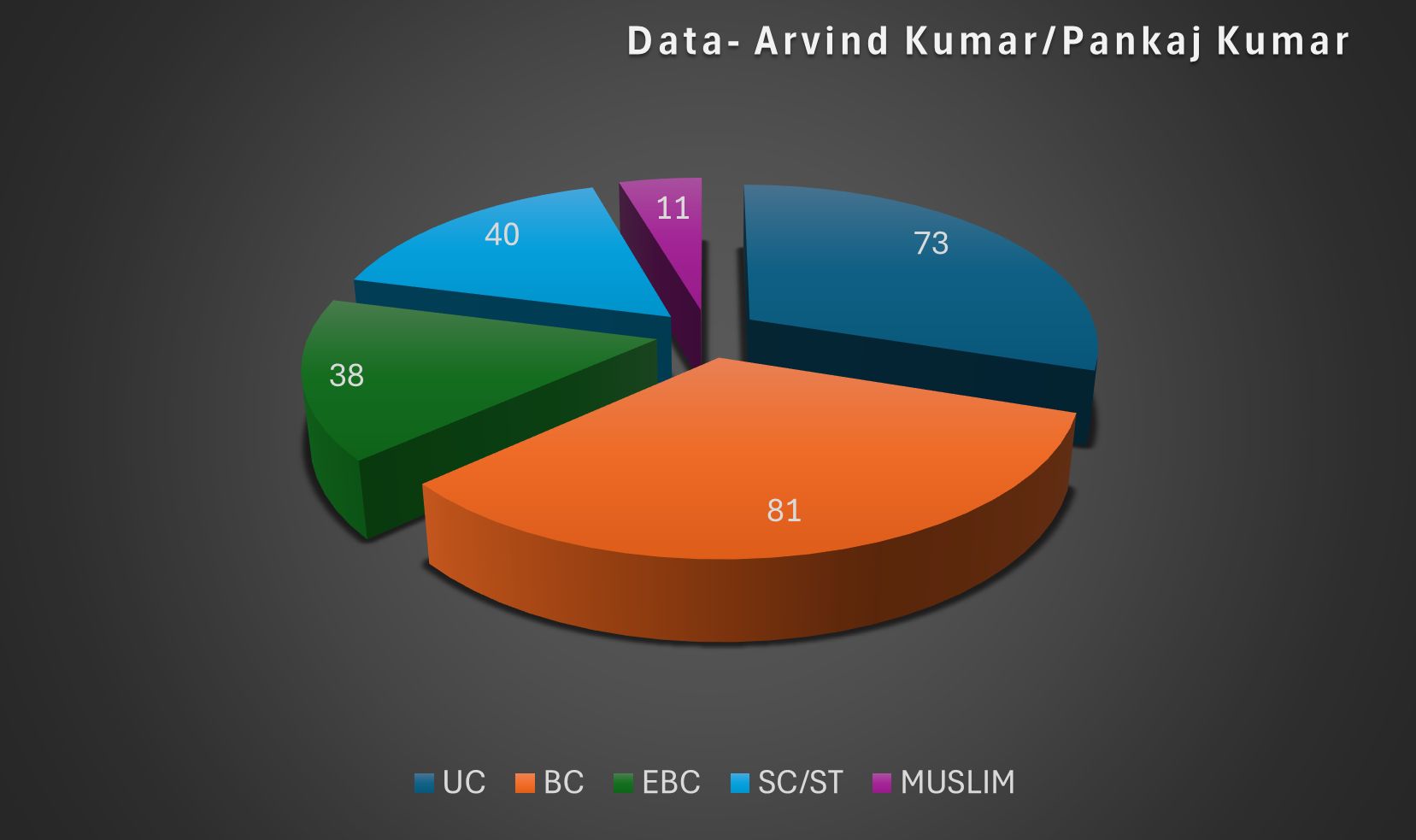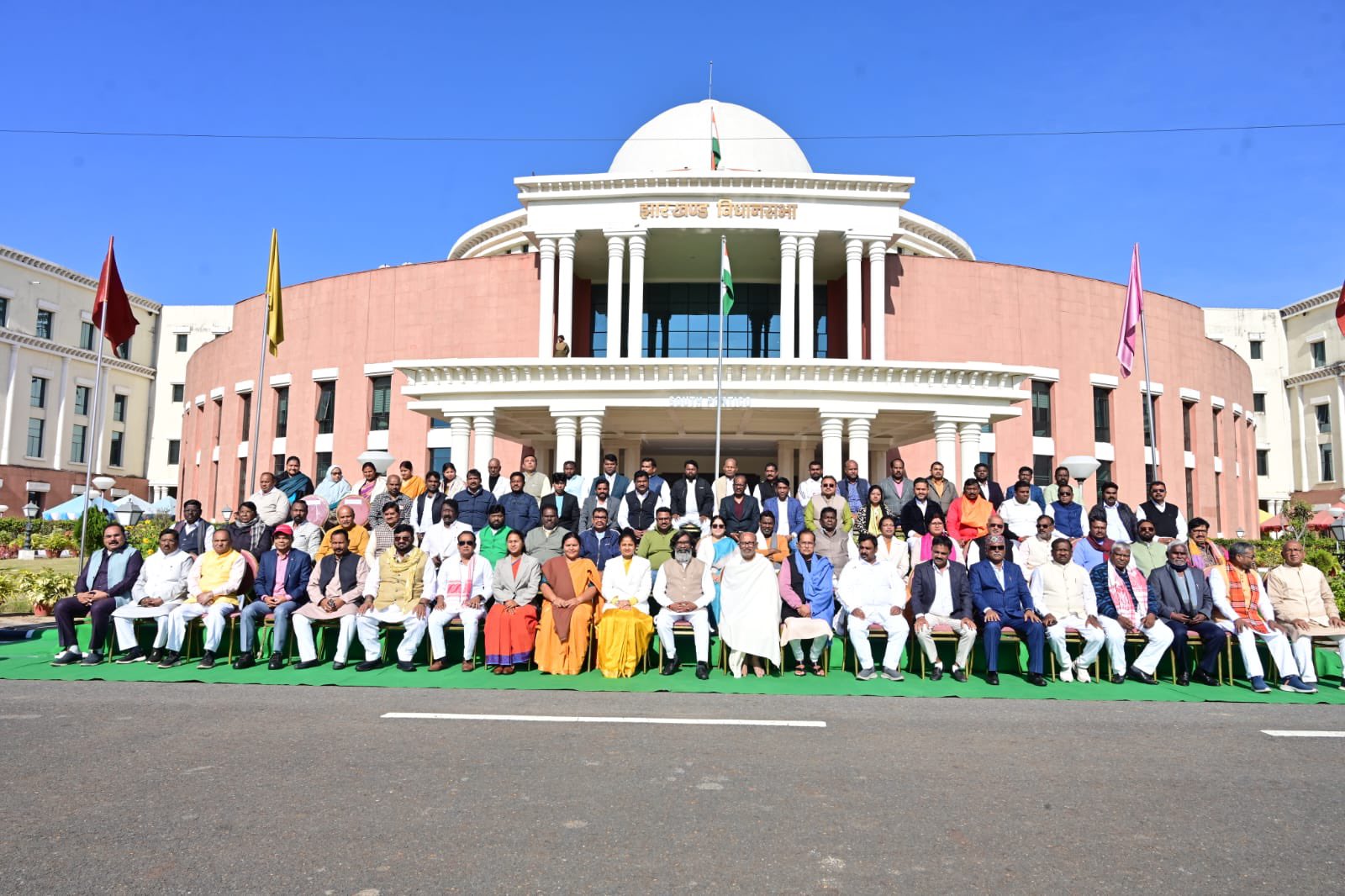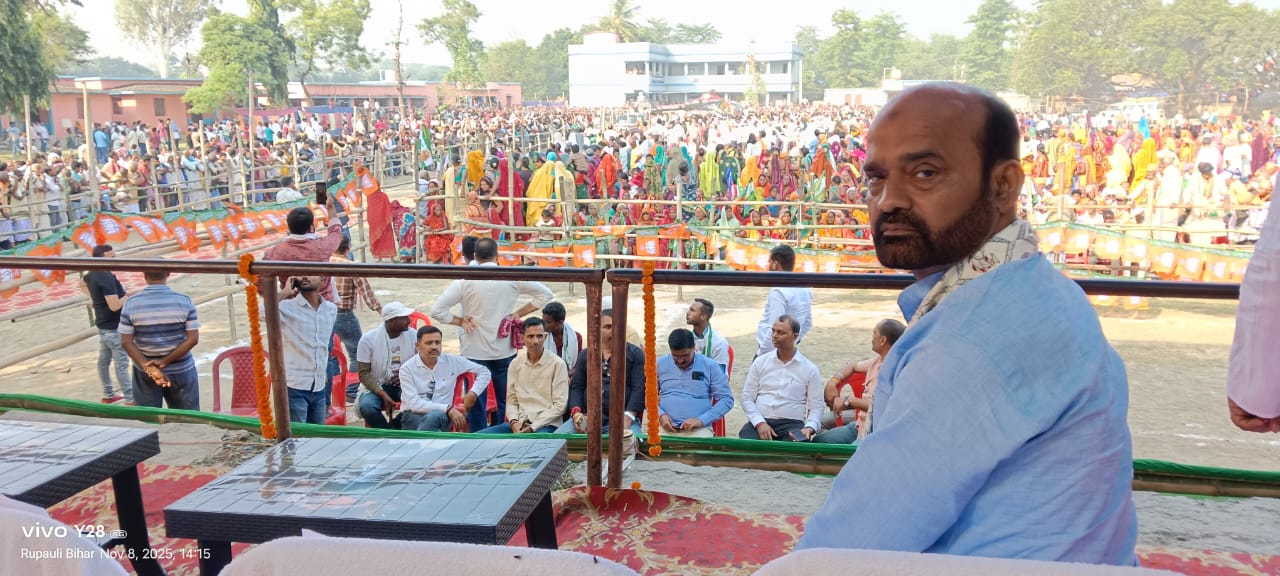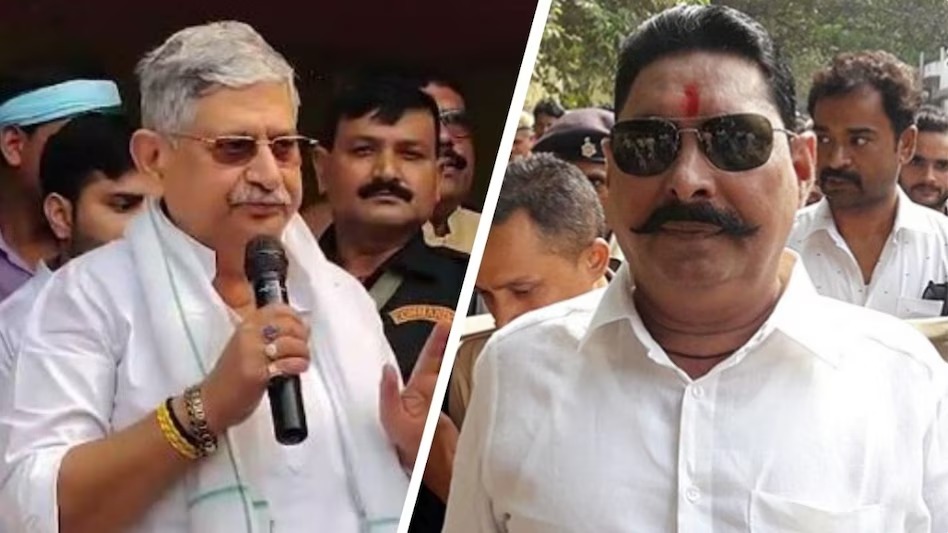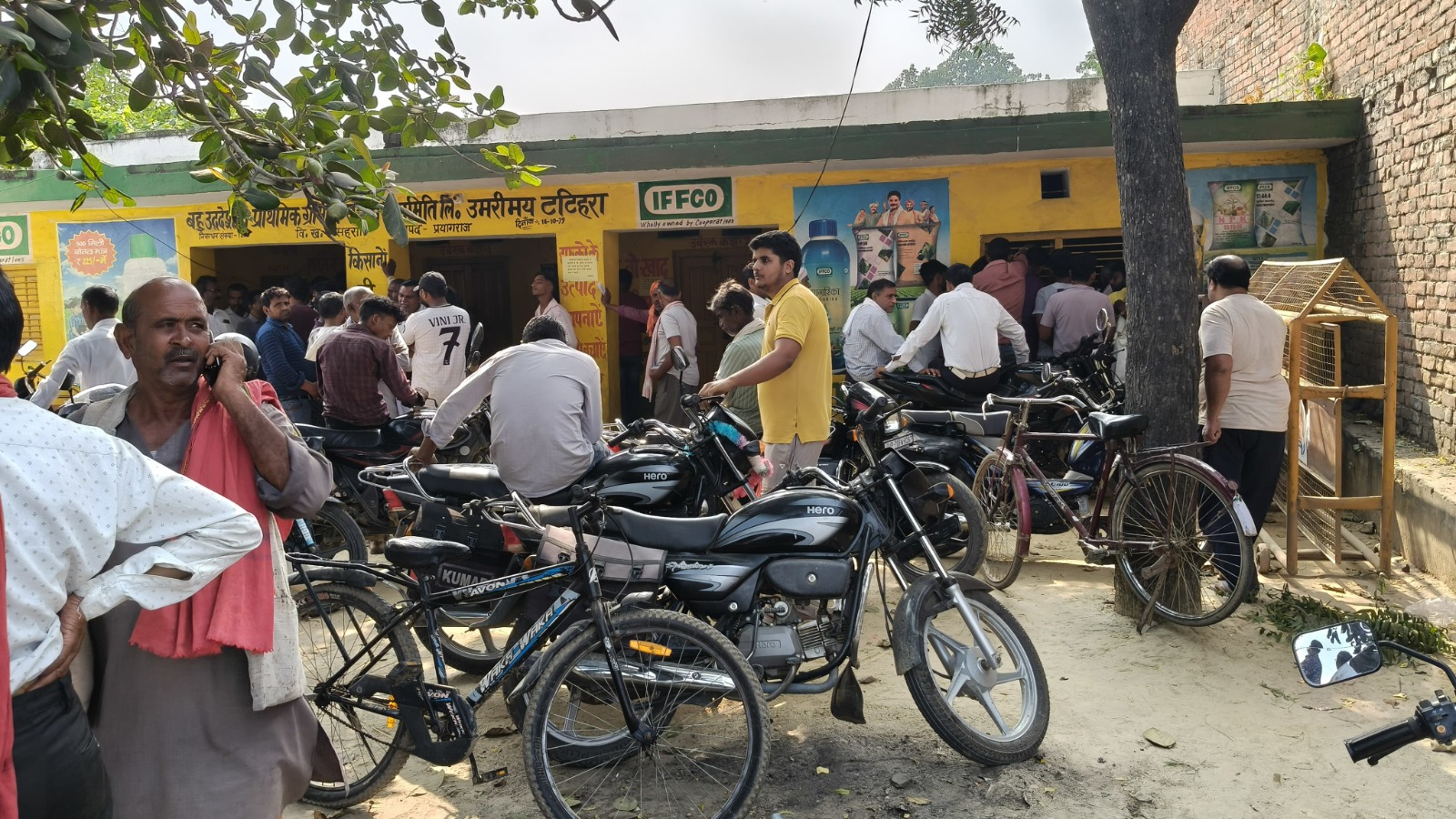Kanwar lene mat jana – a poem by Dr Rajneesh Gangwar, who teaches at the MGM Inter College, Baheri, in Uttar Pradesh’s Bareilly district, urging students not to participate in the Kanwar Yatra – went viral on social media recently. He had recited the poem at the school assembly. A few lines from the poem go like this:
Kanwar dhokar koyi vakeel, DM, SP nahin bana hai
Kanwar jal se koyi bania, hakim, vaidya nahin bana hai
Bhang, ganja, sulfa, madya se koyee uddhar nahin hoga
Jati-dharma ka nasha chhodkar swakalyan karo tum
Shikshalay-pustkalay mein padh, gyan pragadh karo tum
Satkarmon se manav sewa kar, prem ka deep jalana
Kanwar lene mat jana, tum gyan ka deep jalana
Manavta ki sewa karke, sacche manav ban jana …
(None has become lawyer, DM or SP by lugging kanwars. The water from kanwar has helped none to become a businessman, an officer or a doctor. Marijuana, datura, sulfa and liquor are not pathways to liberation. Don’t get drunk on religion, caste; work for your own good. Study in schools and libraries, deepen your knowledge. Do good deeds for humanity, light the lamp of love. Don’t carry kanwars, light the lamp of knowledge. Serve humanity and become a real human being)
Samajwadi Party chief Akhilesh Yadav shared the poem on his X account. A complaint addressed to Arun Kumar, CO of Baheri Police Station, was filed against the teacher-poet by BJP leader Rahul Gupta, municipal councillor Dinkar Gupta, Mahant Dharmendra Rastogi and Shakti Gupta, president of Hindutavadi organization Mahakaal Sewa Samiti. A case was registered against him on the basis of the complaint. According to Ashok Kumar Gangwar, the school’s principal, the poem was recited in the school on 12 July and he has sought an explanation from the teacher concerned.
After the video of the recitation went viral, the poem received accolades from many, but was also flayed on news channels. It was also said that the writer of the poem was an office-bearer of the ABVP and was expelled from the organization. It would be pertinent to mention here that “Gangwar” is a sub-caste of the Kurmi caste. This community is primarily engaged in farming and has a substantial presence in Bareilly, Pilibhit and some other districts. Sachan, Patel, Katiyar, Jaiswar and Baiswar are among other Kurmi sub-castes resident in Uttar Pradesh.
Edited excerpts from a conversation with Dr Rajneesh Gangwar on the poem and its fallout:
What was the reaction to your poem going viral?
It was mixed. A large section of society backed me. They were unanimous in their view that ‘the teacher’ had not said anything wrong to the children in the poem. At the same time, I had to face a media trial. The first question almost all journalists asked was whether I am atheist, whether I don’t believe in god?
What was your answer?
I told them that during the Corona pandemic, all the countries in the world were terrified, frightened. Some people were saying that humanity may have to live with this scourge for a long time. Some even feared that humans would disappear from the face of the earth. If god does exist, why did he not manifest himself in those trying times? All places of worship were shut down. No religious leader could perform any miracle. Everyone was seeking sanctuary in science. But the gurudwaras remained open. They gave food and shelter to the poor, to the migrant labourers stranded due to the lockdown. They provided oxygen to the sick. So, they became the biggest symbols of humanitarianism. Had god been anywhere in this universe, wouldn’t s/he have come out to help humanity in those critical and catastrophic times? While studying history, I did not come across a single incident in which god came and helped anyone. The tales of gods have been crafted as part of a conspiracy to mislead and confuse people. We are not ready to accept the truth. Can there be anything more ironic than this? There are so many gods and goddesses. Did any of them prove useful to any human being? During the pandemic, human beings helped each other. Only human beings can do good to themselves. No god will do anything good to them. What incensed them the most was that in the video of the poetry recitation I have invoked Babadaheb Ambedkar, Nelson Mandela and Bhagat Singh, who rejected the notion of god. These so-called Sanatanis are anti-social elements. They are few in number. I am only telling the children that this is the time for them to acquire knowledge and not lug kanwars. I have not opposed the Kanwar Yatras in any way.
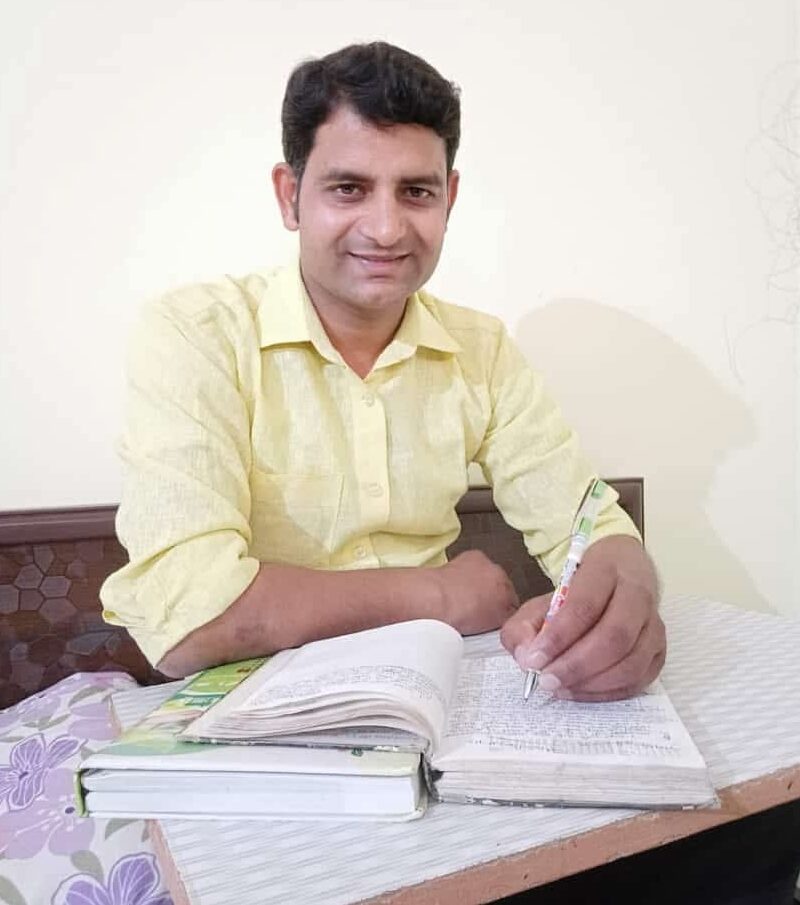
Tell us something about your family background
I hail from Puraina village in Bisalpur tehsil of Pilibhit district. My parents, my elder brother and his wife – they live in the village. My other two brothers and I live elsewhere. My father Bhagwandas Gangwar retired as a lecturer from an inter-college. My mother Ramshri is a homemaker. My father loves farming and does farming on a large scale. The elder brother didn’t receive much of an education. After his intermediate degree, he bought a tractor and took to farming. Now, he has resumed his studies. He is a radical person. Our village needed a bridge. It was sanctioned. But the local MP, MLA and officers of the Public Works Department got the bridge built in another village. My elder brother used to devote 16-17 hours daily to farming. After the bridge was built in another village, my brother entered public life. He has staged a sit-in at the MLA’s residence twice. He is also working on issues faced by farmers. Another brother is a businessman. The youngest has retired from the Indian army. I am a lecturer of Hindi at Bareilly Inter College.
How did you develop interest in literature and poetry?
In 2005-06, I won the first prize in the All India Bharatiya Devnagri Lipi essay competition. In 2017, I was selected for appointment as lecturer at Bareilly Inter College by Uttar Pradesh Secondary Education Service Selection Board. Since then, I have been teaching here. I also began writing songs and poems, which have been broadcast on AIR and Doordarshan from time to time. My poems were also published in different newspapers and magazines. I have been a disciple of well-known Hindi poet Viren Dangwal and treading the path shown by him. At present, I am the state vice-president of Antarrashtriya Manav Kalyan Trust. I have also served as the secretary of Tataghat Foundation, Bareilly. I am also a councillor of Baheri municipality and brand ambassador of Swachh Bharat Mission of the Government of India.
Was your family associated with any political organization or movement?
No. We have never had an association with any political organization. My father was a government teacher, so there was no question of him doing politics openly. My elder brother is a social worker. In our village, we had boycotted the last Lok Sabha elections to press for our demand for the bridge. That boycott was led by my elder brother.
Were you associated with any student organization during your student days?
No. As a student. I never felt like joining any organization. My friends were associated with different organizations. Through them, I was introduced to AISA and ABVP. But I was never a worker or a member of any organization.
So, you have had no association with ABVP?
When I started teaching, there were some acquaintances of mine who were in ABVP. Despite my protests and without my consent, in 2020, they appointed me Bareilly city vice-president of ABVP. Next, they made me president. But after my poem went viral, I was sacked.
Your songs are imbued with humanitarianism and rationality – which is diametrically opposite to the communal ideology of ABVP. How could you have worked in ABVP?
The senior leaders knew that I am a Buddhist and a follower of Kabir’s philosophy based on rationality and humanity. I had been spreading scientific consciousness. But they still made me an officebearer. They said what you propagate is right. You will guide the students in the right direction. I told them that my ideas are not compatible with your ideology. But they were adamant. I work for all-round development of children. I strive to make them think logically and scientifically. They probably could not find anyone better and appointed me.
You also write songs for children?
Yes, I do. When I was preparing for Indian Administrative Service (IAS) exams, I used to teach the children living in slum clusters alongside the Sangam in Prayagraj. I get drawn to children, I love them. I want the children to study as much as possible and shun superstitions, hypocrisy, casteism, discrimination based on religion and untouchability. I don’t want them to follow any religion blindly. That’s why I keep on writing for them. I had written a song that went thus:
Na Hindu banna, na Musalmaan banna
Agar ban sako to insaan banna
Bhedbhav apne hriday se mitakar
Sachchi manavta ki pehchan tum banna
(You should neither become a Hindu nor Muslim. If you can, become a human. Purge your heart of all kinds of discrimination. Become a symbol of genuine humanity).
The students used to sing this song in events at school. One day a teacher, who was associated with the RSS, told me, “Doctor Saheb, don’t write such things. I don’t like them.”
Have you personally witnessed students or teachers being discriminated against on caste or religion basis?
Even I have been a victim of the casteist mindset. I have faced a hostile atmosphere here since taking up my job in 2017. A couple of years ago, a false case was registered against me. To give an example, I told the students that just like you visit mosques and mazars, offer namaz, go to temples and mutts, so you should come to the school. Just as you pay heed to what the pandas and the purohits, the mullas and the maulvis are saying, you should follow what we teachers tell you. If you do that, the light of knowledge will shine in your homes. If you don’t believe me, you can ask your elders. I was told that I was invoking religion. What else can a teacher tell the children? Some good-for-nothing Savarna teachers only kill time in school. Who attends government schools these days? Only children from SC, ST and Muslim families. Teachers with a Savarna mindset want them to remain unlettered slaves. They are content with teaching them what is written in the books. They never try to explain things. If children’s curiosity is awakened, they will start studying on their own. I want to make them capable of this but these people don’t like it.
So, do you organize cultural programmes on the birth anniversaries of Ambedkar and Savitribai Phule or on the National Science Day in your school?
No, we don’t organize programmes. But we do tell the children about them. We give assignments on these personalities to the students. We ask them to write essays on them and go through what they write. The library at my school was shuttered for years. We have cleaned up the place and opened it for the children. The other teachers want the library to remain closed so that the children cannot sit and read there. I was told at a meeting that I should not ask the students to sit in the library, that I should not be close to them.
They are opposed to posting ideas of Ambedkar, Osho, Kabir and Buddha on Facebook. They don’t want logical, scientific things to be posted. They tell me that I am anti-Sanatan and write against religion and the government. They want me to join them in their constricted ideological space.
In Bareilly and in the other districts of western UP, there is a growing trend of installing statues and idols. Have you done anything in society and school to resist this trend?
The BJP has been doing all this to thrust cultural symbols on people. There is only one way to resist them – taking the Bahujan movement forward. Dalitbahujan cultural events are being organized. We tell the children about them and then ask them to write about them.
What are your ideological inclinations?
I believe in socialism. All sections of society should get equal representation. I take part in the protests by farmers and students on their issues and in other movements, too. After the latest developments, many of my former students contacted me. Some even met me. They said, “Sir, we are with you.” It is a matter of great joy and honour for me that my former students still remember what I taught them.
(Translated from the original Hindi by Amrish Herdenia)
Forward Press also publishes books on Bahujan issues. Forward Press Books sheds light on the widespread problems as well as the finer aspects of Bahujan (Dalit, OBC, Adivasi, Nomadic, Pasmanda) society, culture, literature and politics. Contact us for a list of FP Books’ titles and to order. Mobile: +917827427311, Email: info@forwardmagazine.in)

